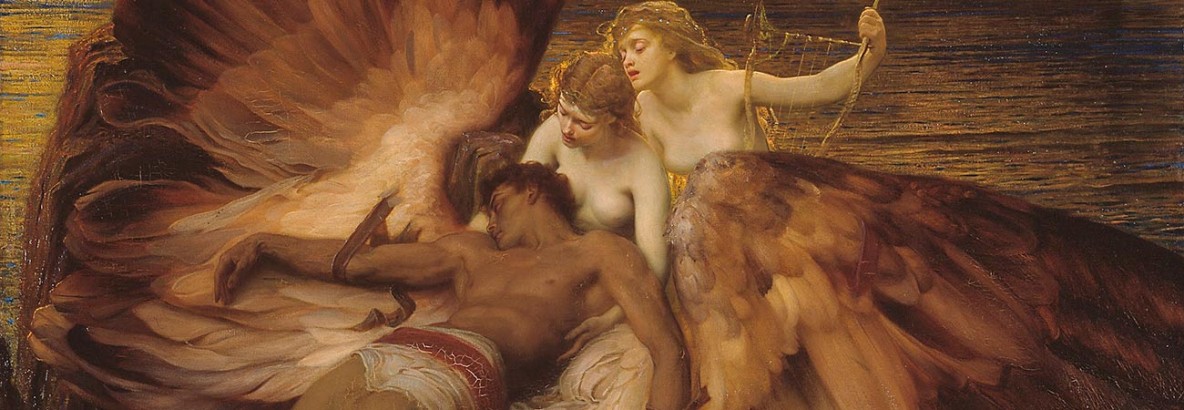Most people learn about the fate of Icarus at a young age. It serves as a powerfully graphic warning of the perils of excessive self-confidence, how one should avoid extreme risks because of their potentially grave conscequences.
The crux of the story has even passed into our lexicon as a euphemism for over-reaching ambition or greed. I’ve often heard it said, in a slightly smug way, that someone has “flown too close to the sun” if their ventures have sadly failed, as if they should have heeded the story of Icarus and known better.
The story of Icarus is the tale of Daedalus and his son, Icarus, who are exiled on Crete and unable to escape by means of sea or land. In a final bid to escape, Daedalus crafts imitation bird’s wings out of feathers fastened with thread and bees wax which he affixes to their arms, allowing them to fly away from the island like birds into the sky.
Before their flight, he gives his son firm instructions as to the course he should take on this flight of escape, warning that Icarus must stay well away from the moisture of the sea at low levels and the heat of the sun and many constellations of stars at high altitude.
‘Let me warn you, Icarus, to take the middle way, in case the moisture weighs down your wings, if you fly too low, or if you go too high, the sun scorches them. Travel between the extremes. And I order you not to aim towards Bootes, the Herdsman, or Helice, the Great Bear, or towards the drawn sword of Orion: take the course I show you!’
And so they fly out like birds, with wings upon their shoulders, flying as if they were gods travelling into the sky. At the sheer excitement of the freedom of the sky, Icarus soars higher and higher in his daring flight, abandoning his father and flying close to the sun, until it’s heat softens the fragrant wax that holds the wings in place. Eventually, the wax melts, the feathers loosen and the boy flails his bare arms in vain, only to plunge to his death in the deep Icarian Sea, thereafter named in his honour.

It’s a very sad story of a father losing a son after his advice is roundly ignored, and everyone suffers as a consequence. I always interpreted this story as a warning against overreaching myself, that I should always maintain a realistic set of parameters in any endeavour that I might undertake.
But there’s more to the story than that. As I consider this tale, I start to feel the story is more like middle class propaganda, a conspiracy to try and keep peoples heads down. Because it also serves as a warning that you shouldn’t do anything particularly good or bad, just stick to the middle ground and everything will be OK.
It also acts as a fantastically cautionary piece of advice for parents to pass on to children, telling them not to walk outside of the boundaries of safety. Don’t take risks, keep your head down, fly low and keep out of danger. These are not pieces of advice that anyone seeking to create a sense of self-fulfillment should ever follow. They should be doing precisely the opposite, taking risks, following their heart and being their own person.
Looking at the story in the context of life’s endeavours, I find that flying close to the sun can actually be a spectacularly good thing. It’s important to take risks, to dive in at the deep end or ignore what people tell you to do. As George Bernard Shaw said, be unreasonable. Flying close to the sun or pushing the boundaries of what people say you can do is exactly where the future of human endeavour lies. Sometimes, when you fly close to the sun, your wax doesn’t melt and from that position you get a pretty spectacular view of the world.

The Icaraian Sea was named after the boy whose life it claimed and that dedication seems incredibly appropriate, for we often name things after heroes, role models or people of great standing. What Icarus was doing was not outrageous, or wild, it was human nature, trying to propel himself further than his forebears. All of us should look at his example and start trying to fly closer to the sun.
Sadly, Icarus paid the ultimate price for his efforts, he suffered for his desire to reach new heights. His story is tragic, because it was one of those rare cases in which life or death pivoted on the fragile wings upon his shoulders. But mythical stories are never going to be average, or take the middle ground like Daedalus advised, it is their job to be extreme examples, to show the broad depths and heights of human existence. For those of us living life outside of Greek mythology, it’s unusual to encounter situations with such grave consequences, and when we do, we instinctively act with caution.
However, for the remaining 99.999% of my life which is not a life or death situation, or a vignette of literary tragedy, nor a place where the the imposingly morbid scars of my untimely fate are present, Icarus serves as an idol, someone to be revered as a boy who took wise, sage, reasoned advice, then utterly ignored it in the hope of soaring higher than anyone else before him.
And that, my friends, is precisely why Icarus is my hero. Because his pure hope and unalloyed joy at the freedom of flight led him to seek new heights that no-one else had reached. That feeling is something that should not be sullied or repressed, but allowed to be free and nurtured within every single one of us.
So from now on, every single time I face a challenge in life, every time I have to choose between the freedom to fly and soar above the world or toe the line and stick to the middle ground, I’m going to think of Icarus, then head straight for the sun.
This post was first published on medium.com

